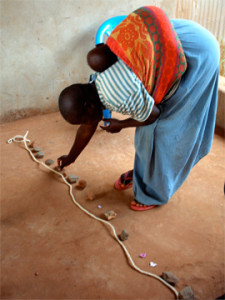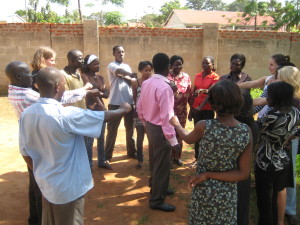vivo’s mission
vivo works to overcome and prevent traumatic stress and its consequences within the individual, the family as well as the community, safeguarding the rights and dignity of people affected by violence and conflict. vivo further aims to strengthen local resources for the development of peaceful, human rights-based, societal ways of living.

Ethical standing of vivo
vivo is politically neutral and independent. It’s ethical standing and work is particularly based on:
UN Universal Declaration of Human Rights
UN Convention on the Elimination of All Forms of Discrimination against Women (CEDAW)
UN Convention on the Rights of the Child (CRC)
UN Convention on the Elimination of all Forms of Cruel, Inhumane or Degrading Treatment or Punishment
UN Convention on the Prevention and Punishment of the Crime of Genocide
UN Convention relating to the Status of Refugees
UN International Convention for the Suppression of the Traffic in Women and Children
The Hague Convention

vivo’s core principles are impartiality and ethical behaviour through psychotrauma work that is professional and measurable, based on scientific knowledge as well as field experience.
vivo acknowledges ethno-cultural differences as well as individual uniqueness. Psychological trauma has caused suffering throughout the evolution of humankind. Regardless of the specific cultural background of a victim, suffering from post-traumatic symptoms is a person-unique as well as human universal response to a horrifying or life-threatening experience.
vivo based its conviction on the knowledge and assumption of basic anthropological, psychological and biological equality of mankind in this respect, since trauma challenge the fundamental being of a person. Amid peril and pain, humans do not differ in their emotional and somatic involvement to which they experience the psychological exposure of traumatic impact! The body will always show survival preparedness, while the mind gets shattered and traumatized. The traumatic experience outweighs ethnic and cultural differences in psychopathology, although the importance of culturally sensitive treatment and assessment must not be neglected.
The cross-cultural research fostered through vivo will consider indigenous expressions of disorders after traumatic events, native idioms of distress and show ethno-cultural sensitivity in the assessment, including the use of instruments, language and concepts.


